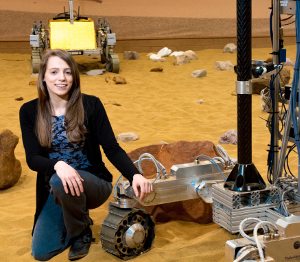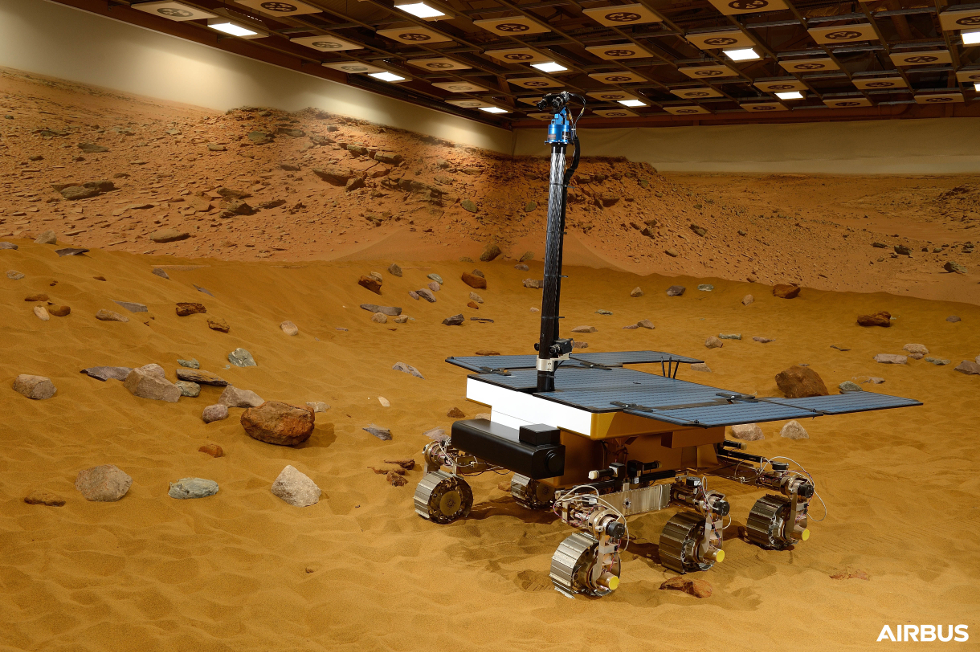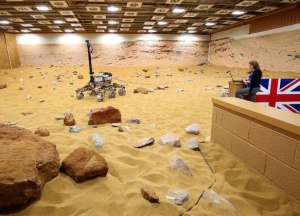
Kat Styles is a thermal engineer for Airbus Defence and Space (DS). She joined Airbus DS as a graduate in 2013 and became a fully-fledged thermal engineer in 2015. Kat studied Astronomy, Space Science and Astrophysics at the University of Kent and graduated with an MPhys in 2013.
What do you like most about being an engineer?
I like that every day is different and you are constantly being challenged. Each day a new problem arises and you have to work hard to come up with the right solution.
What attracted you to a career in engineering and to Airbus DS?
It wasn’t until I got to university that I decided I wanted to go into engineering. Although I was mostly interested in space science at first, my degree also included physics which allowed me to keep my options open. Being able to combine my interest of space science and engineering is what led me to Airbus DS.
What is your typical day like?
It’s hard to say. A project goes through different stages and it really depends on what stage we are at. One week you will be doing design work, the next you will be focusing on the analysis. After the design and analysis work is complete, we get to test the products and hardware. A day can go from office-based design to hands-on work in the test facilities. It really does vary and that keeps it interesting.
Tell us about an interesting project you’ve been working on recently?
I recently finished work on the ExoMars rover project. It was a unique project and was particularly interesting for me as a thermal engineer. Typically we would be designing products to work thermally in space, which is a vacuum. However, on Mars there is an atmosphere so you have to consider that as well. That was a really interesting challenge for us.
And it’s now been to Mars, which is extra cool! I also work on some interesting telecoms projects. These types of projects are cutting edge and you are always working with new technology. We turnaround telecommunications satellites much quicker than we would a scientific project like the Mars rover. Scientific projects take a lot more time and are designed over the course of about ten years.

What’s your favourite thing about working for Airbus?
My favourite thing about working for Airbus is when you successfully launch hardware into space. I had a spacecraft successfully launched earlier this year called SES-10. SES-10 was the first spacecraft I worked on and it is now operating in space – it was very exciting!
Do you think the industry has changed in terms of opportunities for female engineers?
I think there is definitely the opportunity for females to pursue a career in engineering but there is still a noticeable difference in the number of females at different stages of their careers. Amongst the graduates and young people there is a much higher percentage of females compared to the more senior engineers. Over the last ten years I would say it has shifted significantly, with more female candidates applying for graduate and entry-level roles now. I think pursuing careers in engineering and studying STEM subjects is becoming more attractive to females.
Do you think more needs to be done to encourage young females into careers in engineering?
There is a lot going on now to encourage more young women into engineering and other STEM careers. I’m part of Airbus’ STEM ambassador network. We go to schools and career fairs to connect students with engineers to chat and arrange other events. It’s great to see much younger students, especially females, who are really enthusiastic about engineering and science now. I don’t think there would have been such a significant proportion of females a few years ago, before there was a big push in the UK to make STEM subjects more attractive.
Airbus has a dedicated department for running STEM activities. We also recently attached a STEM centre and viewing gallery to our Mars Yard in Stevenage. Students can now come to Stevenage and get a real feel of what it’s like to be an engineer. They can have lessons in our classroom, try out some cool experiments and view the Mars Rovers.

What advice would you give to young females wanting to pursue a career in engineering?
There are three pieces of advice I would give to young females wanting to pursue a career in engineering:
- Work hard - It’s not just about academic ability, you need to be hard working and determined too. Secondly, seek opportunities for work experience - it doesn’t have to be directly related to what you want to work in but it helps you stand out. I did a placement with the MET office, working on their ground based observation team. It’s not related to what I’m doing now, but it’s important to have that experience.Finally, have confidence in your abilities - some girls might think they can’t do it or won’t be successful in the industry. You can be, so go for it!





Swiss geoengineering start-up targets methane removal
No mention whatsoever about the effect of increased methane levels/iron chloride in the ocean on the pH and chemical properties of the ocean - are we...